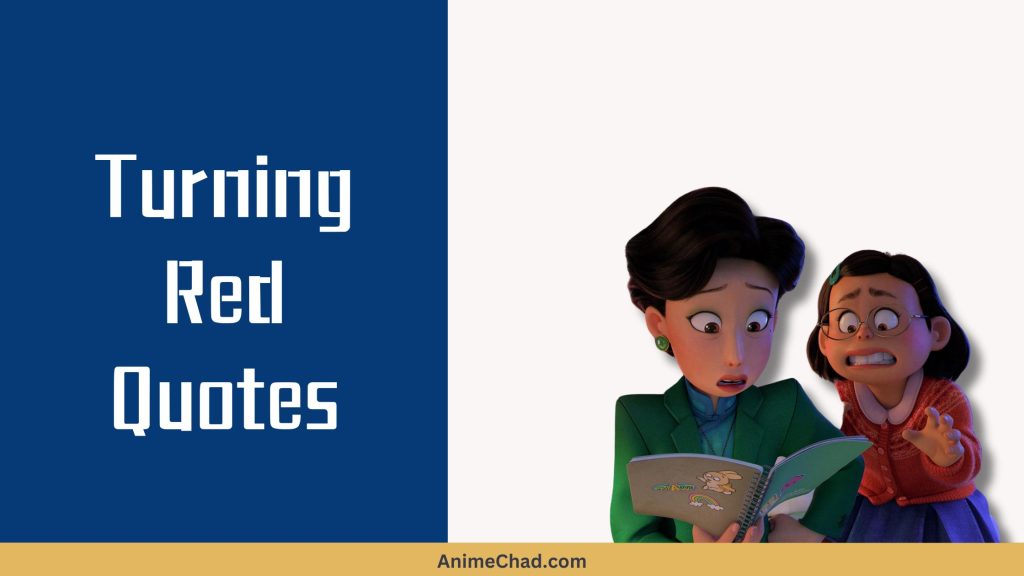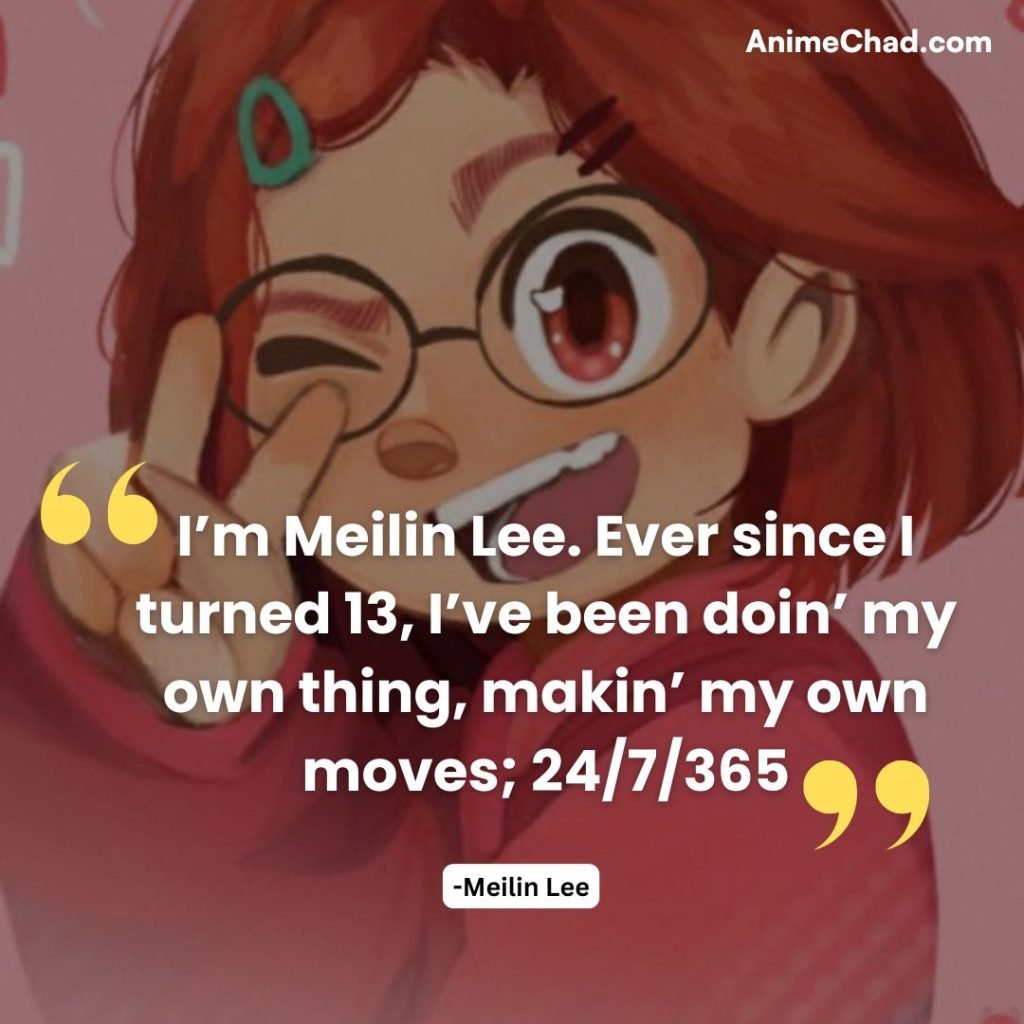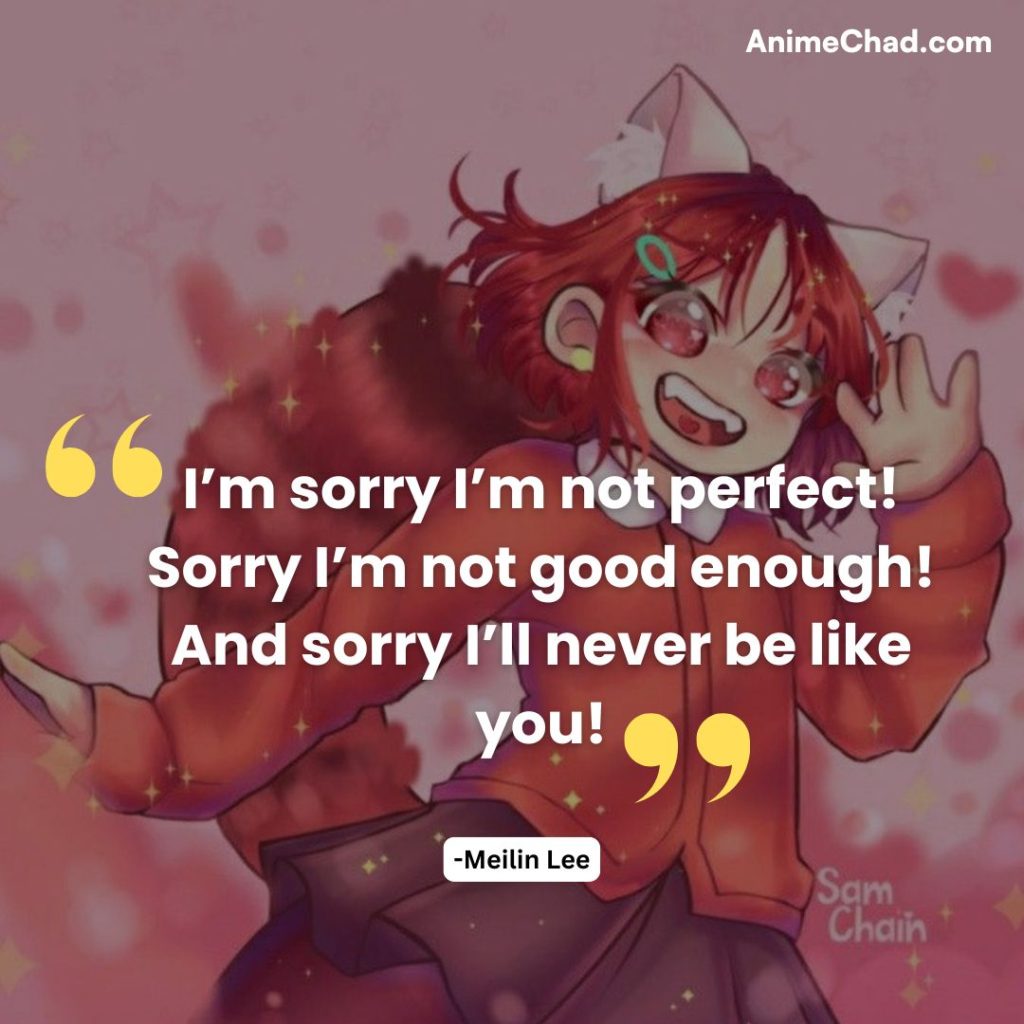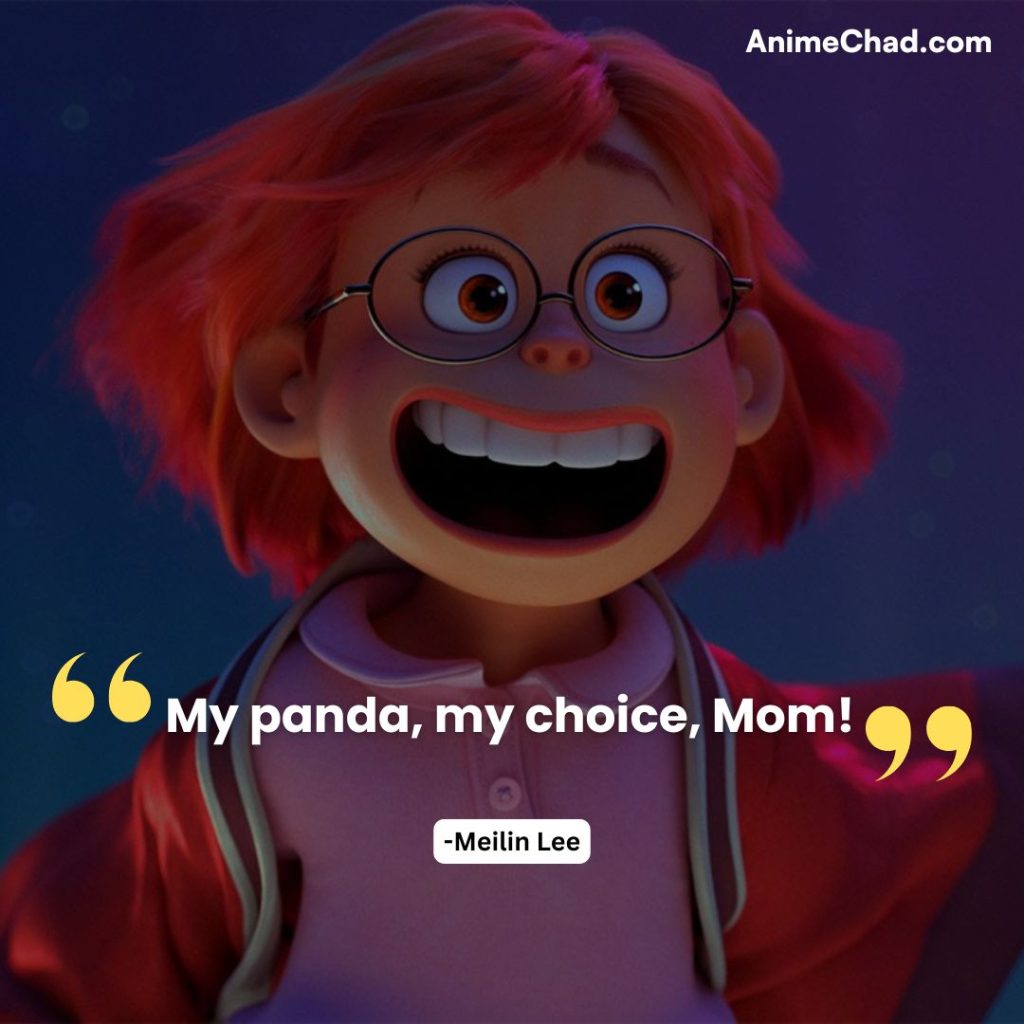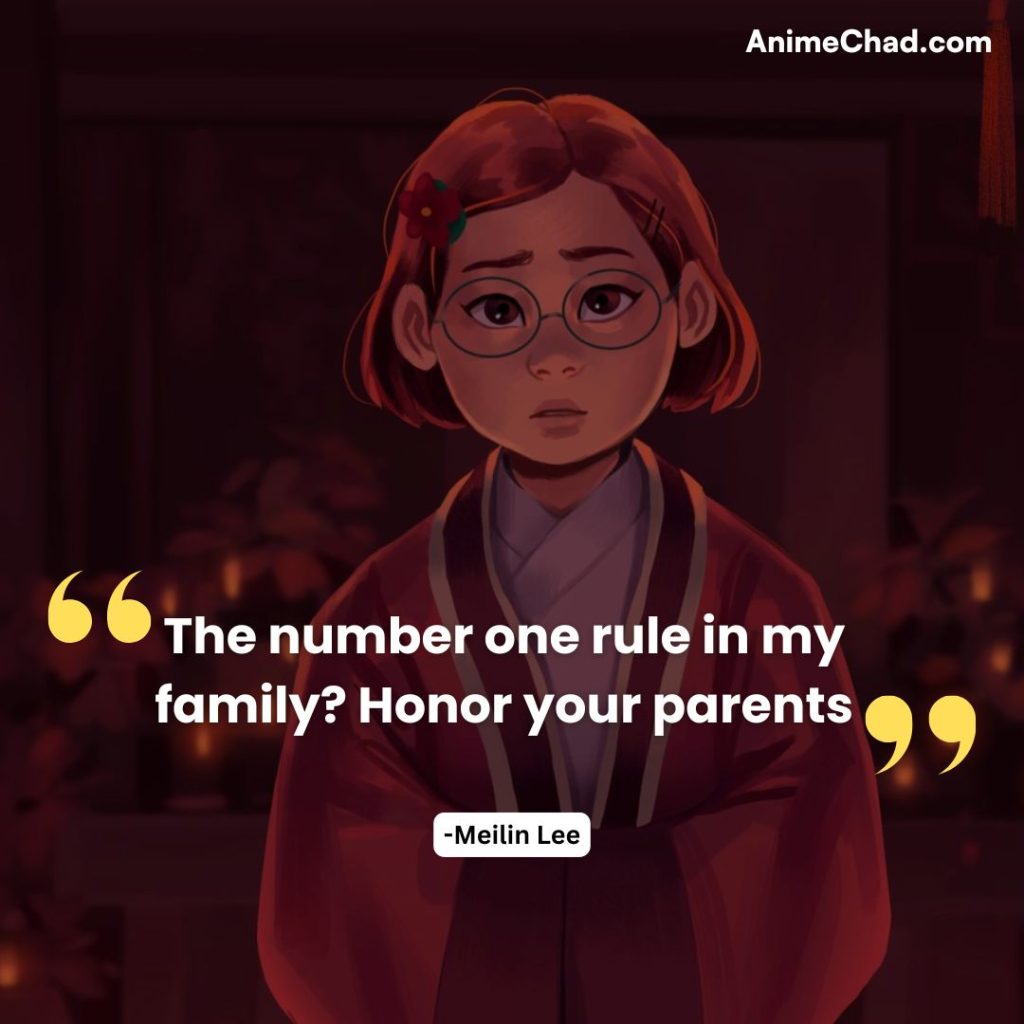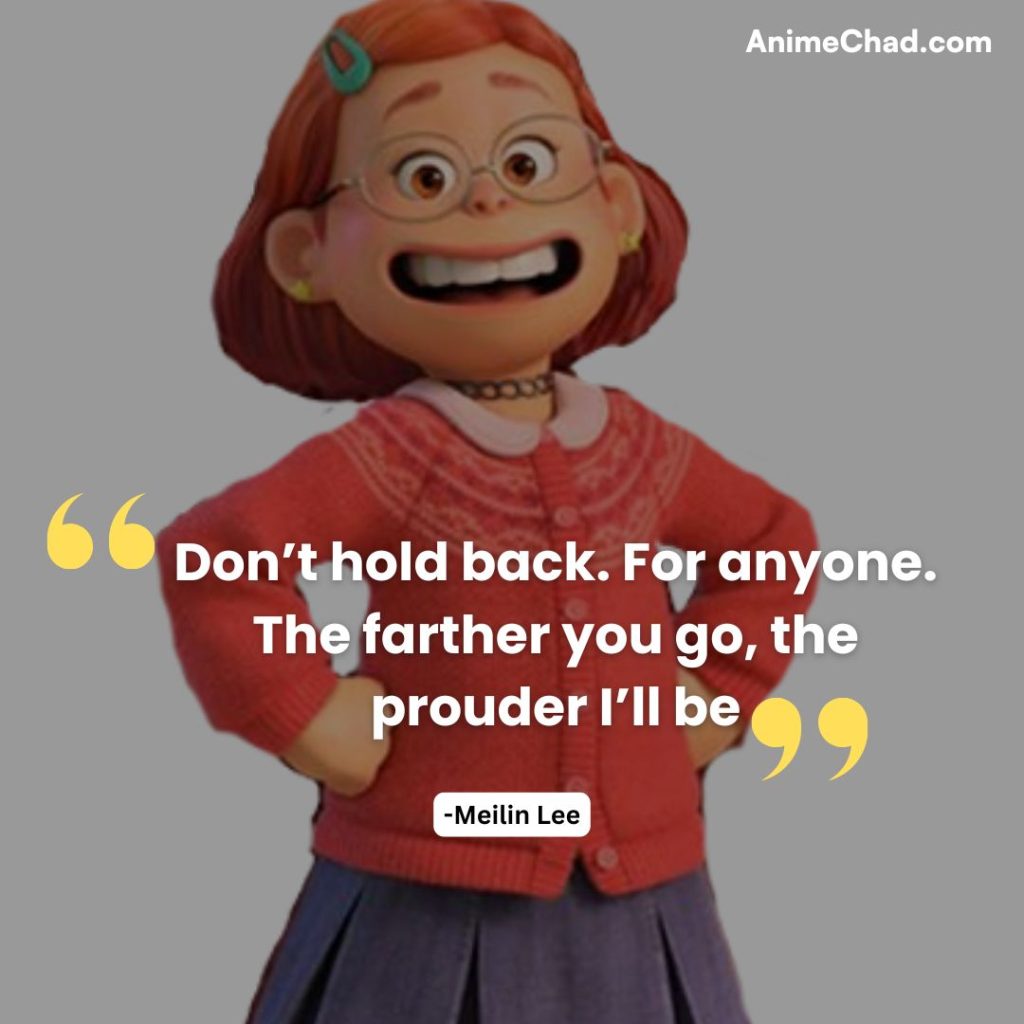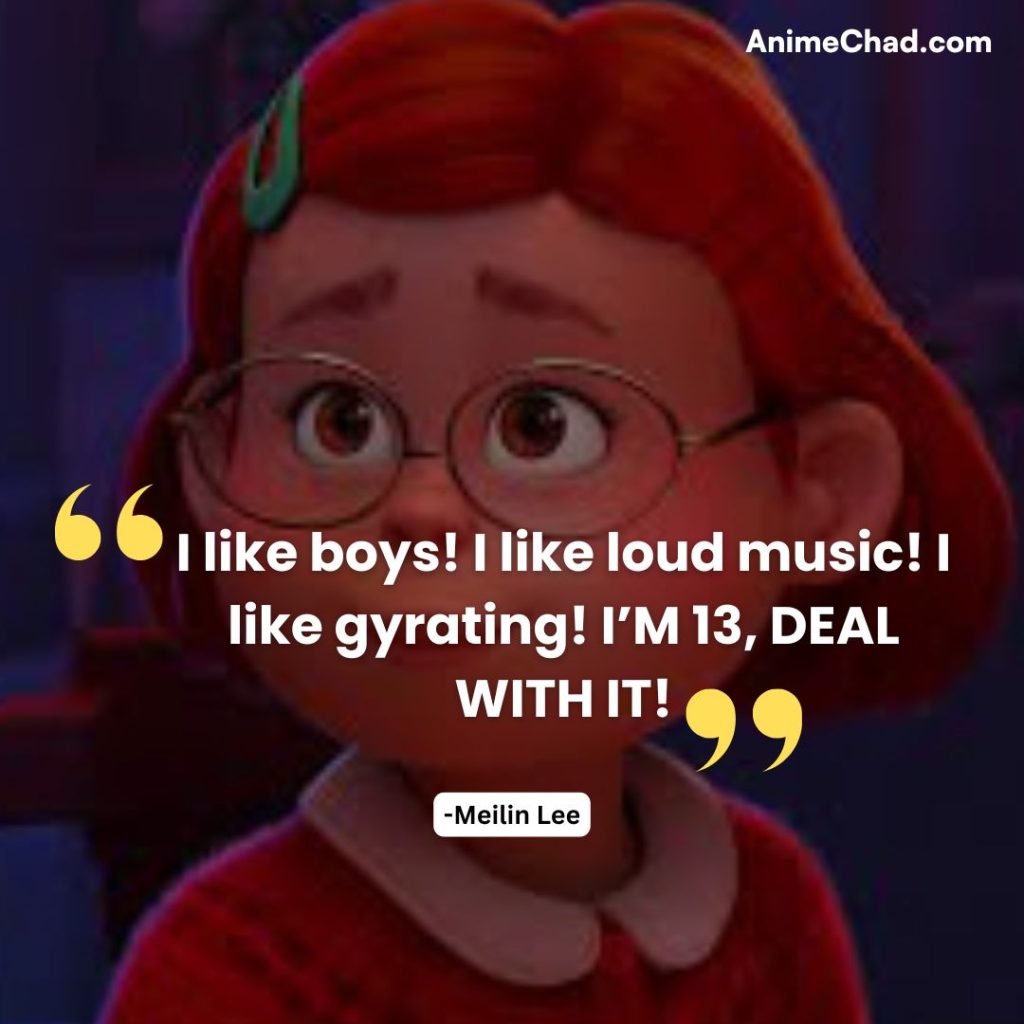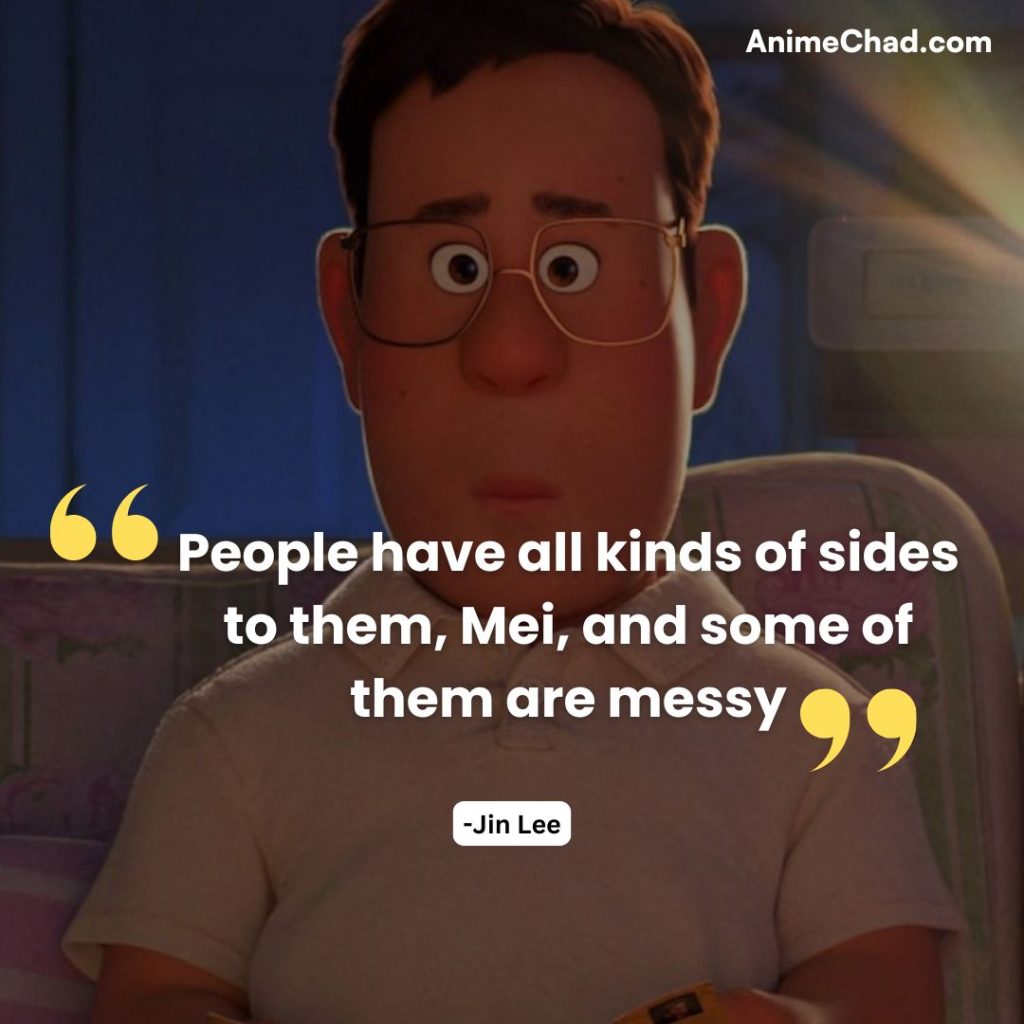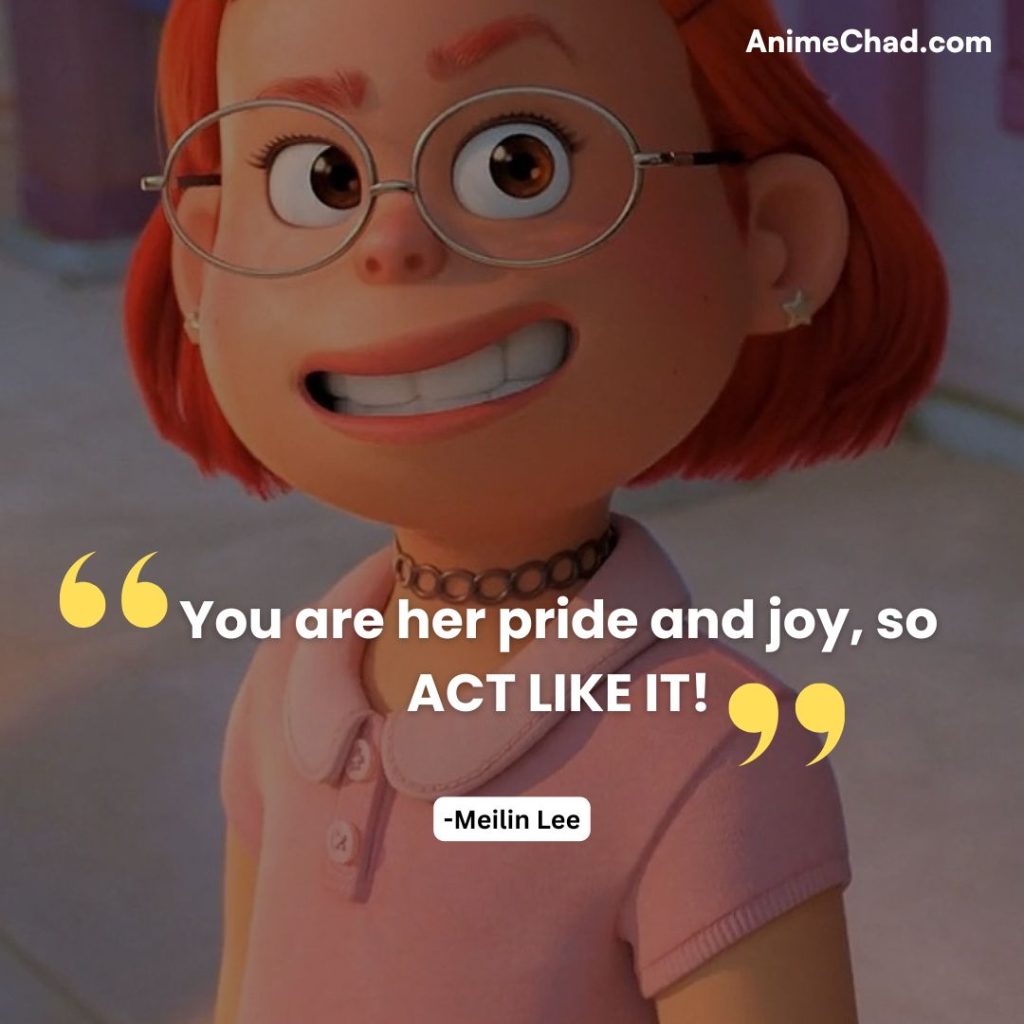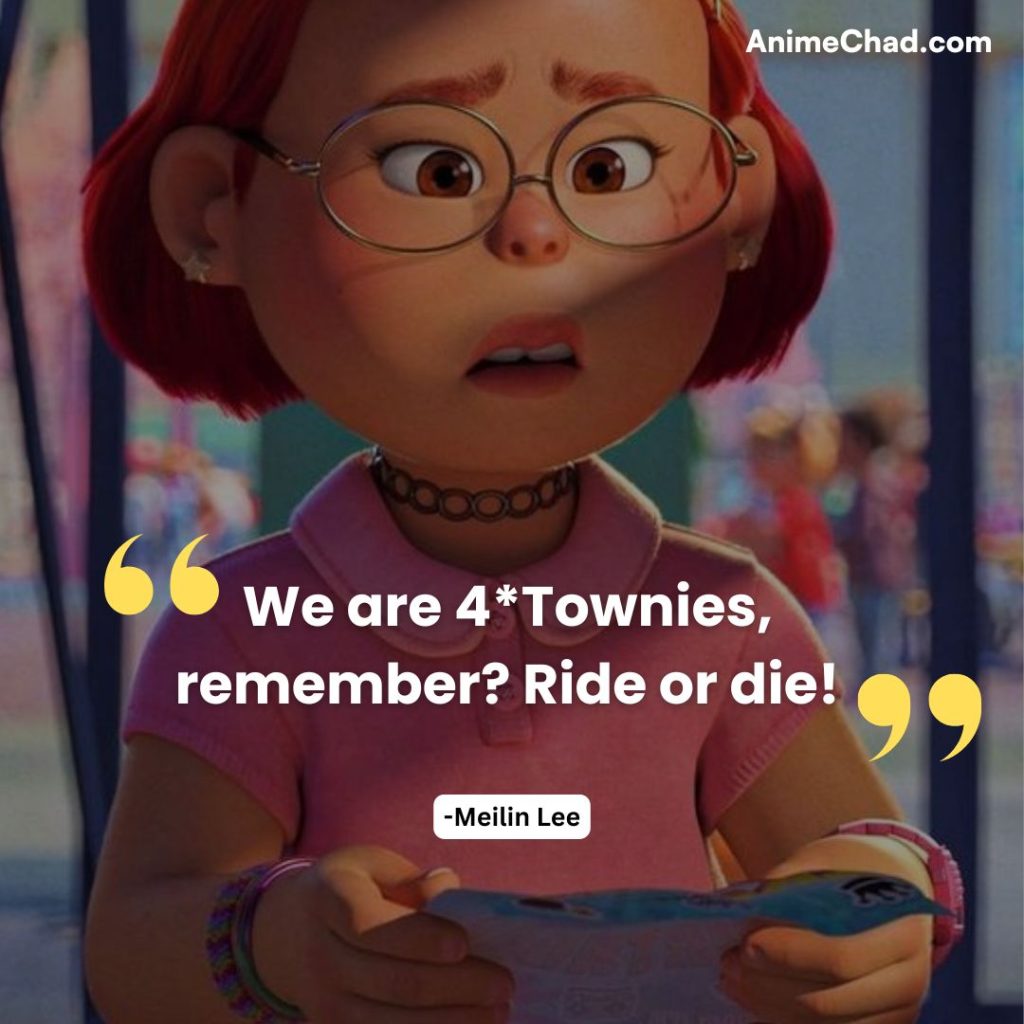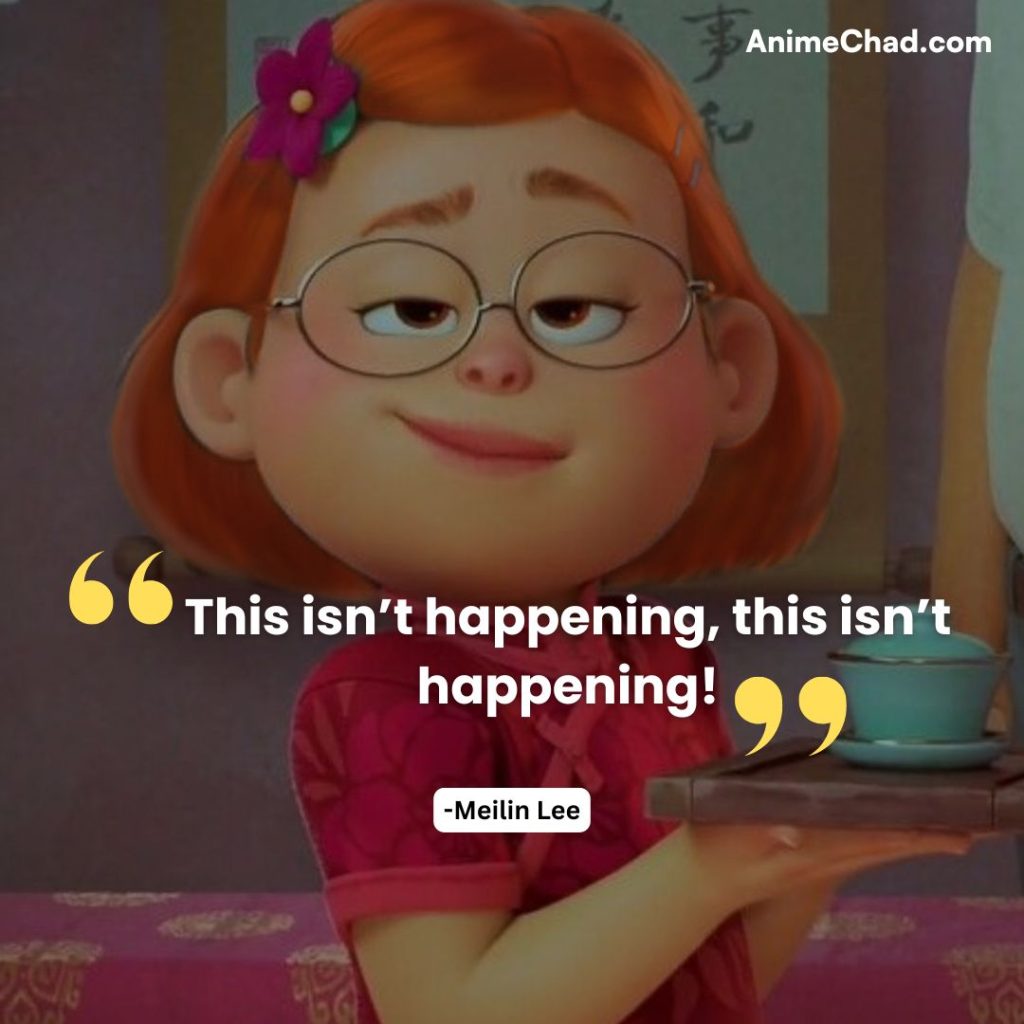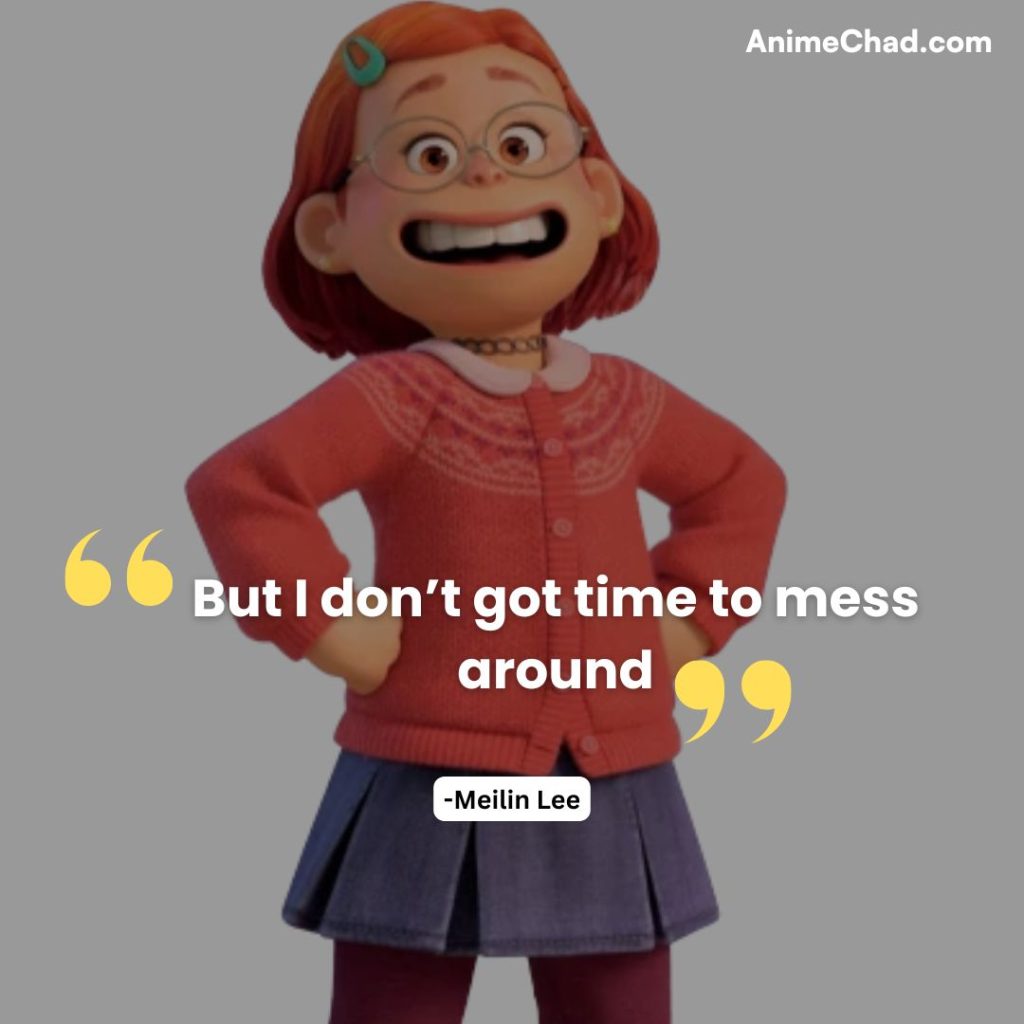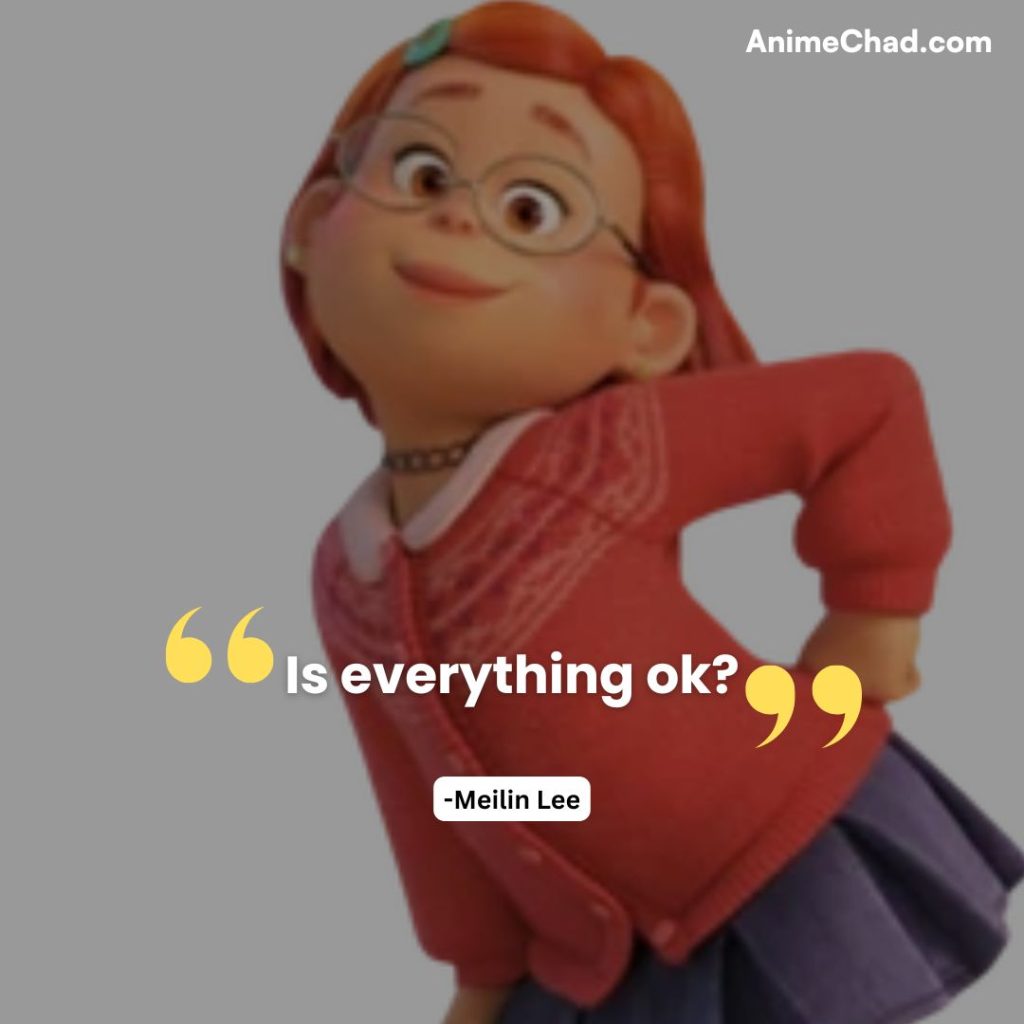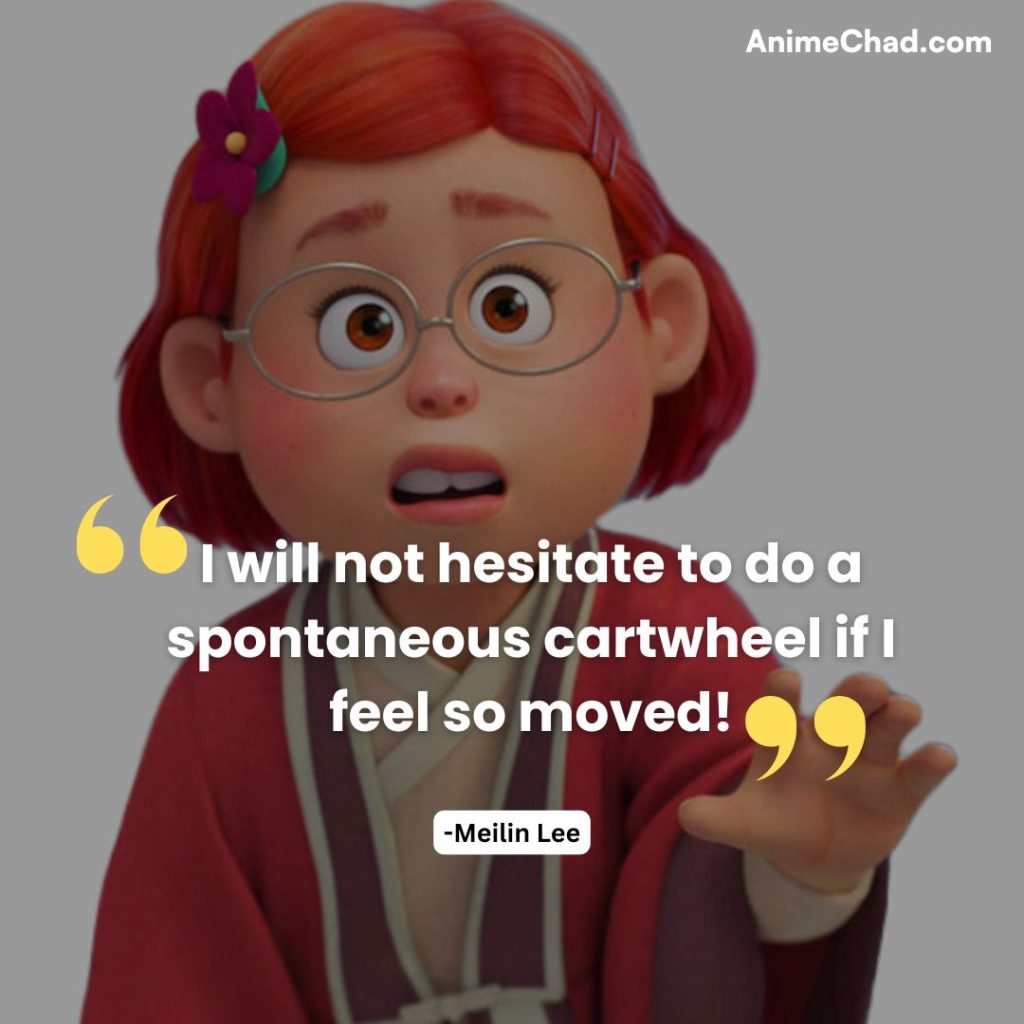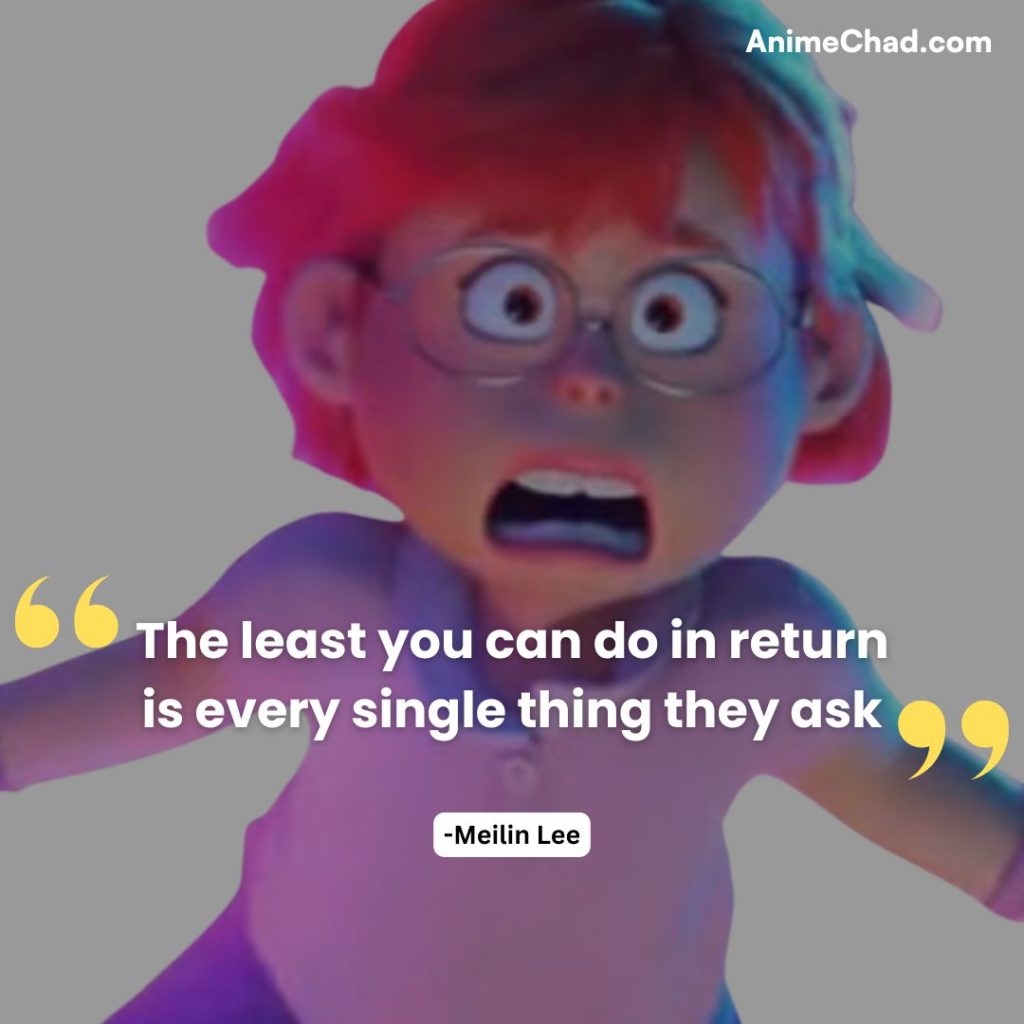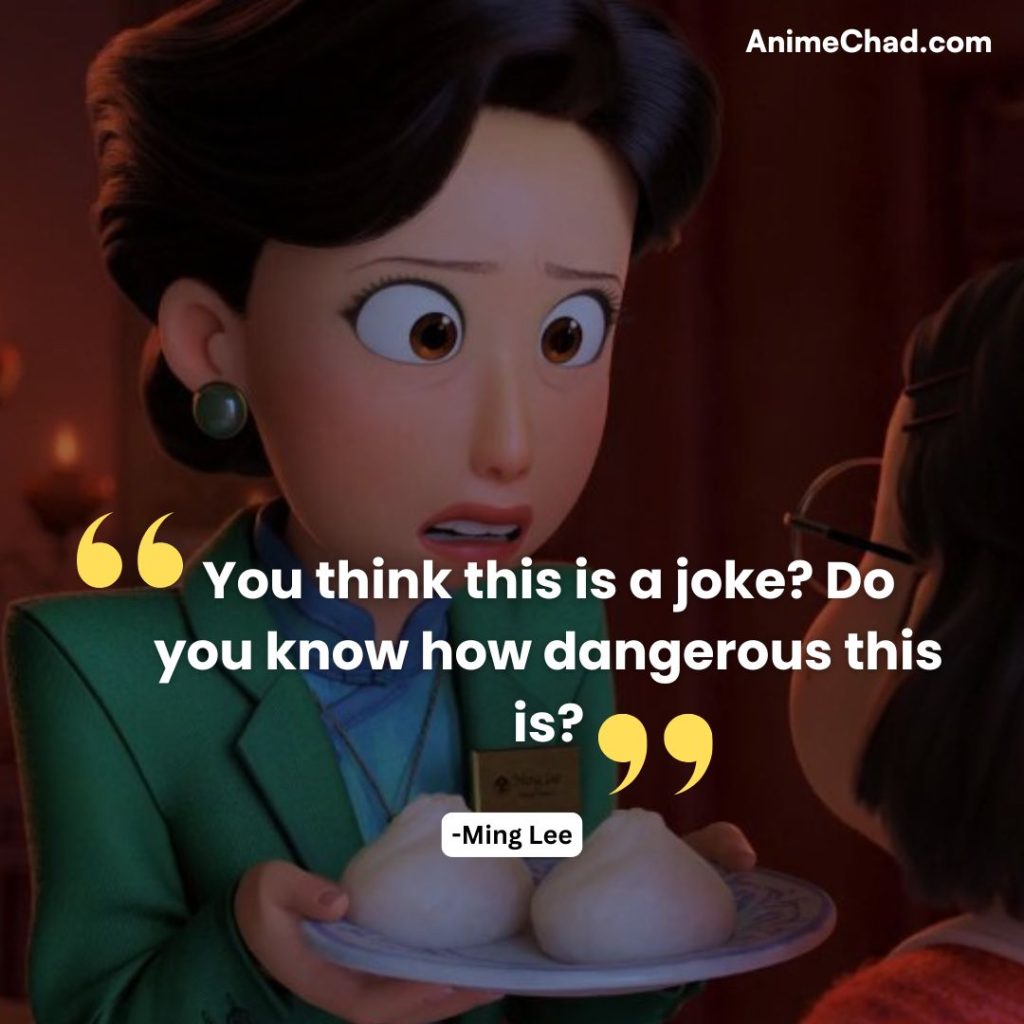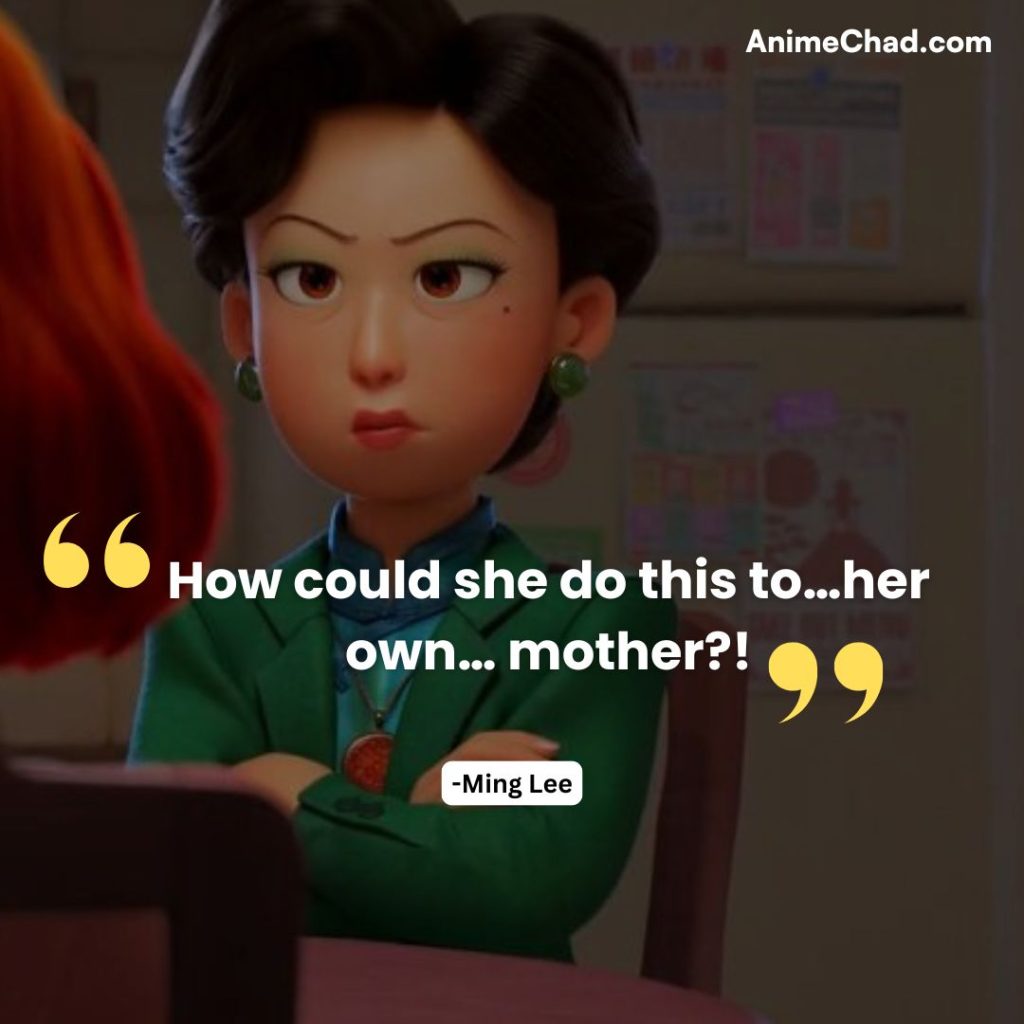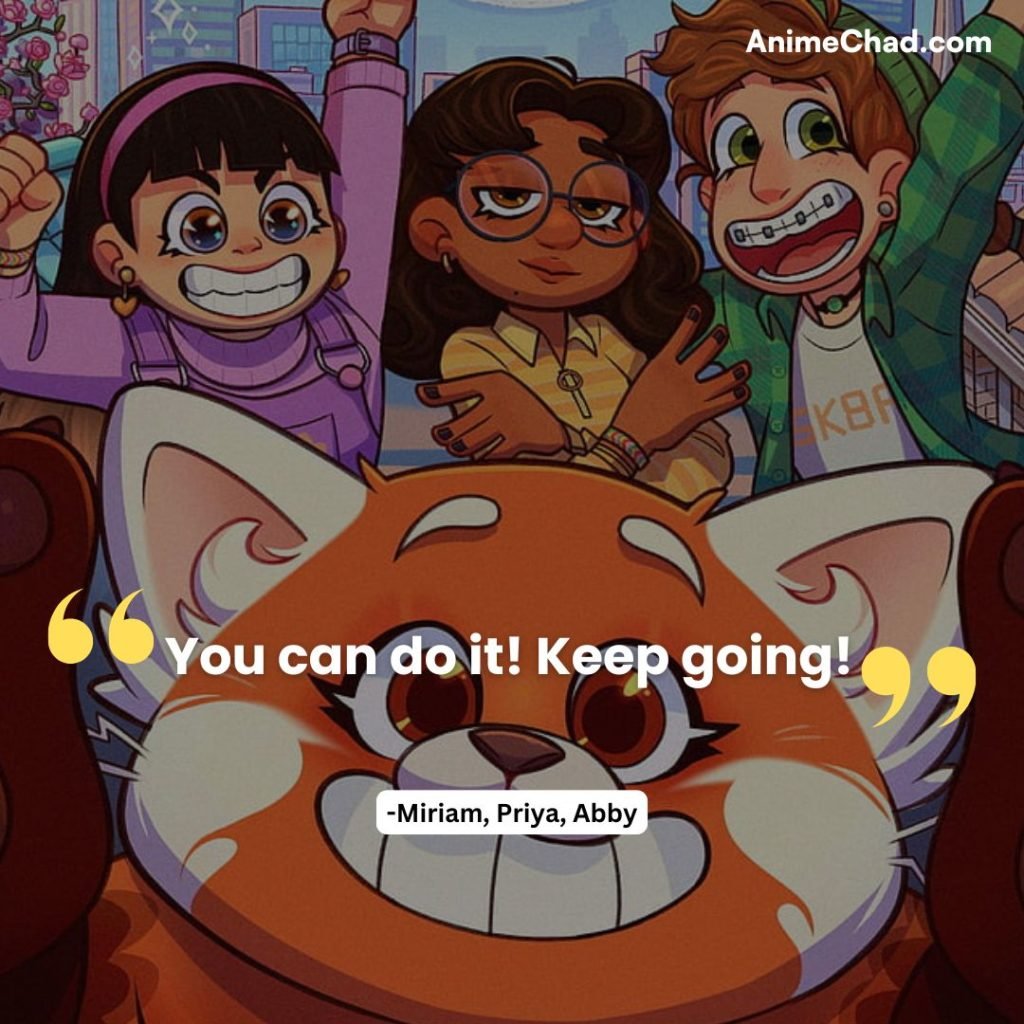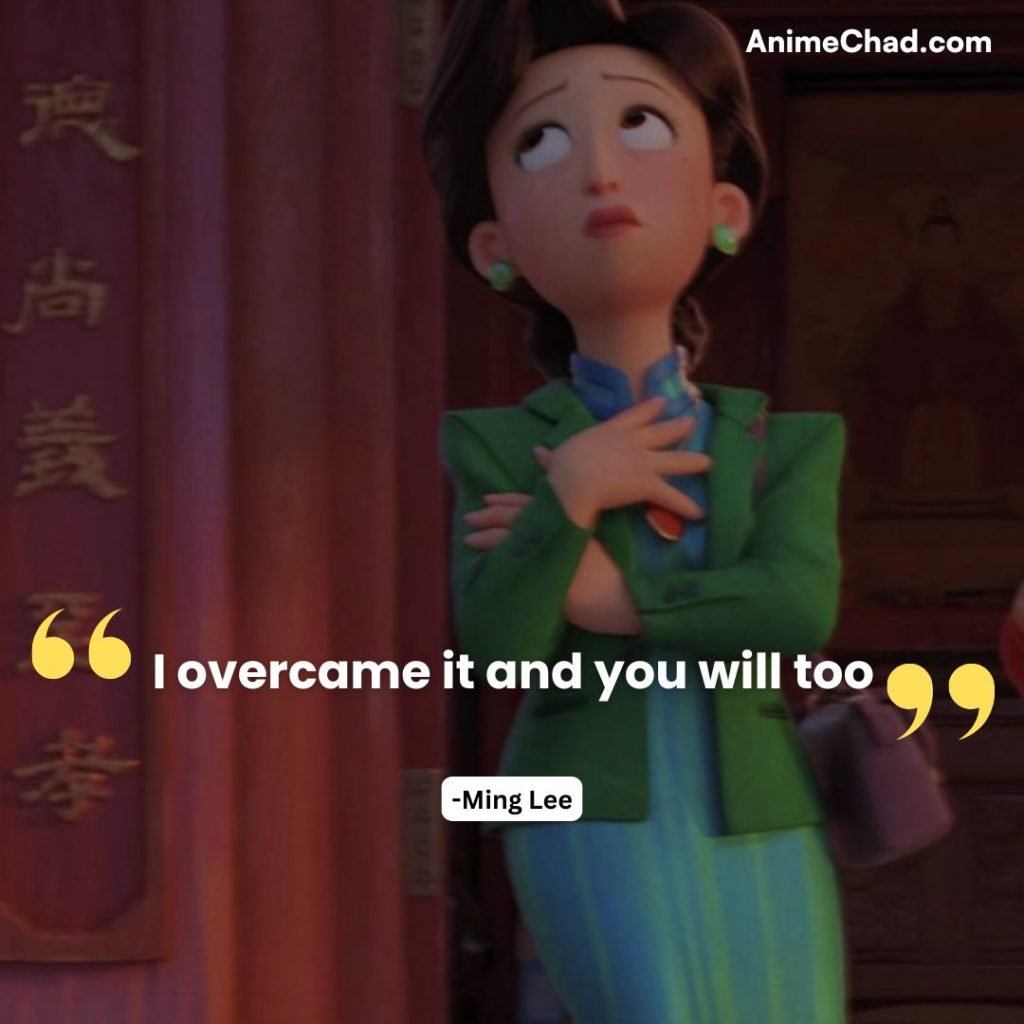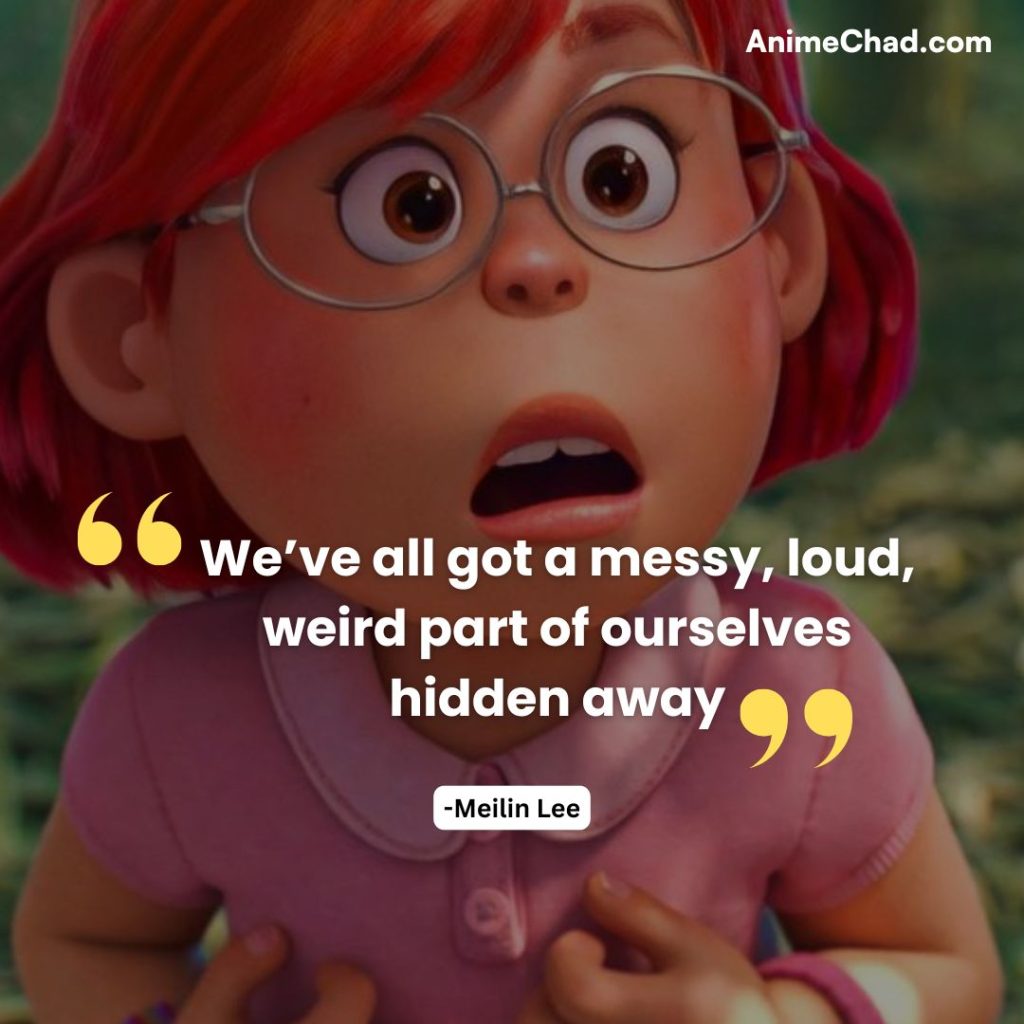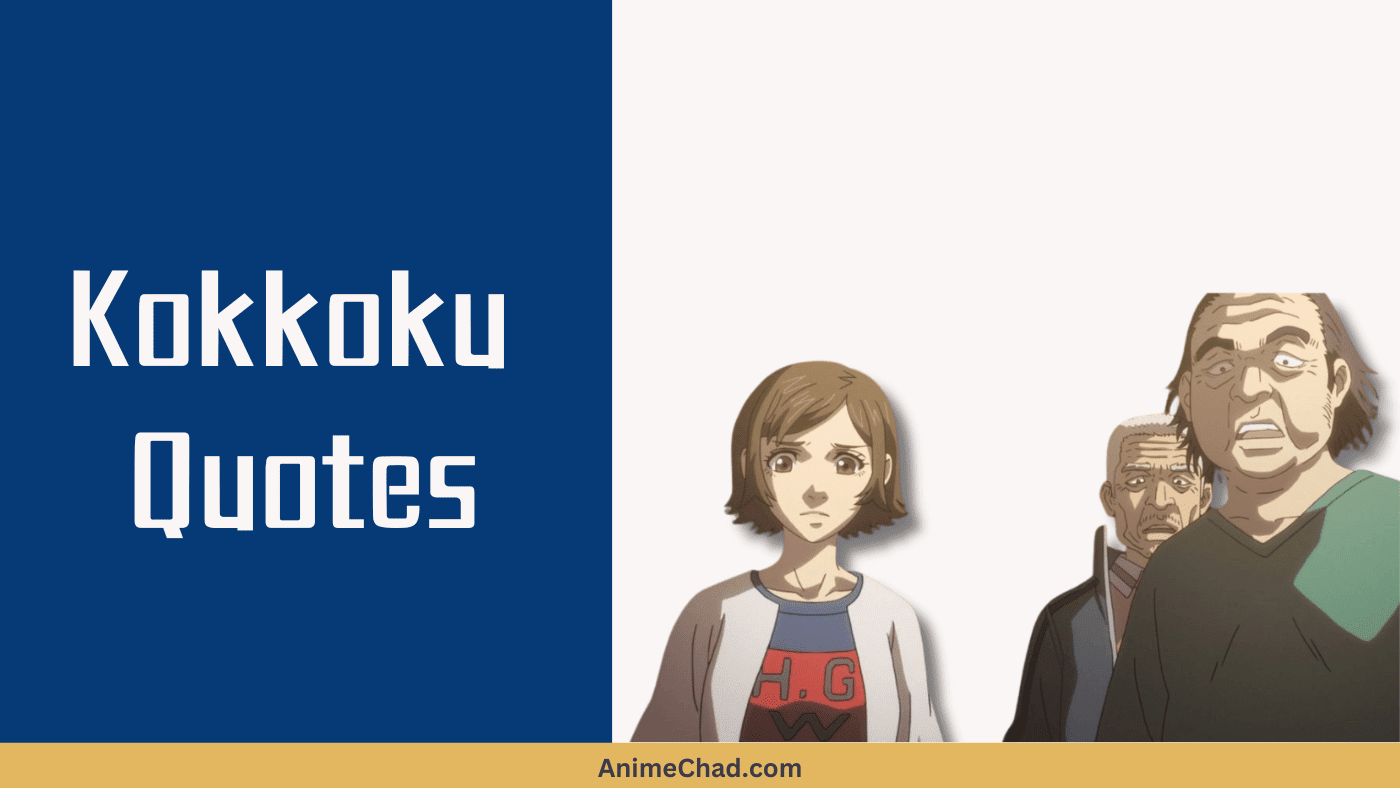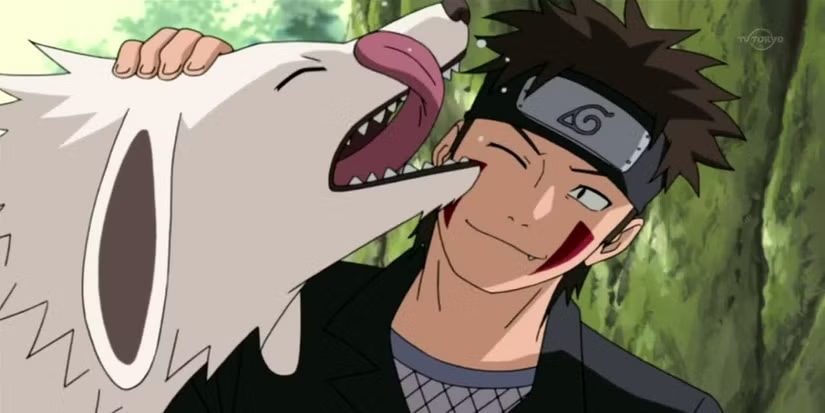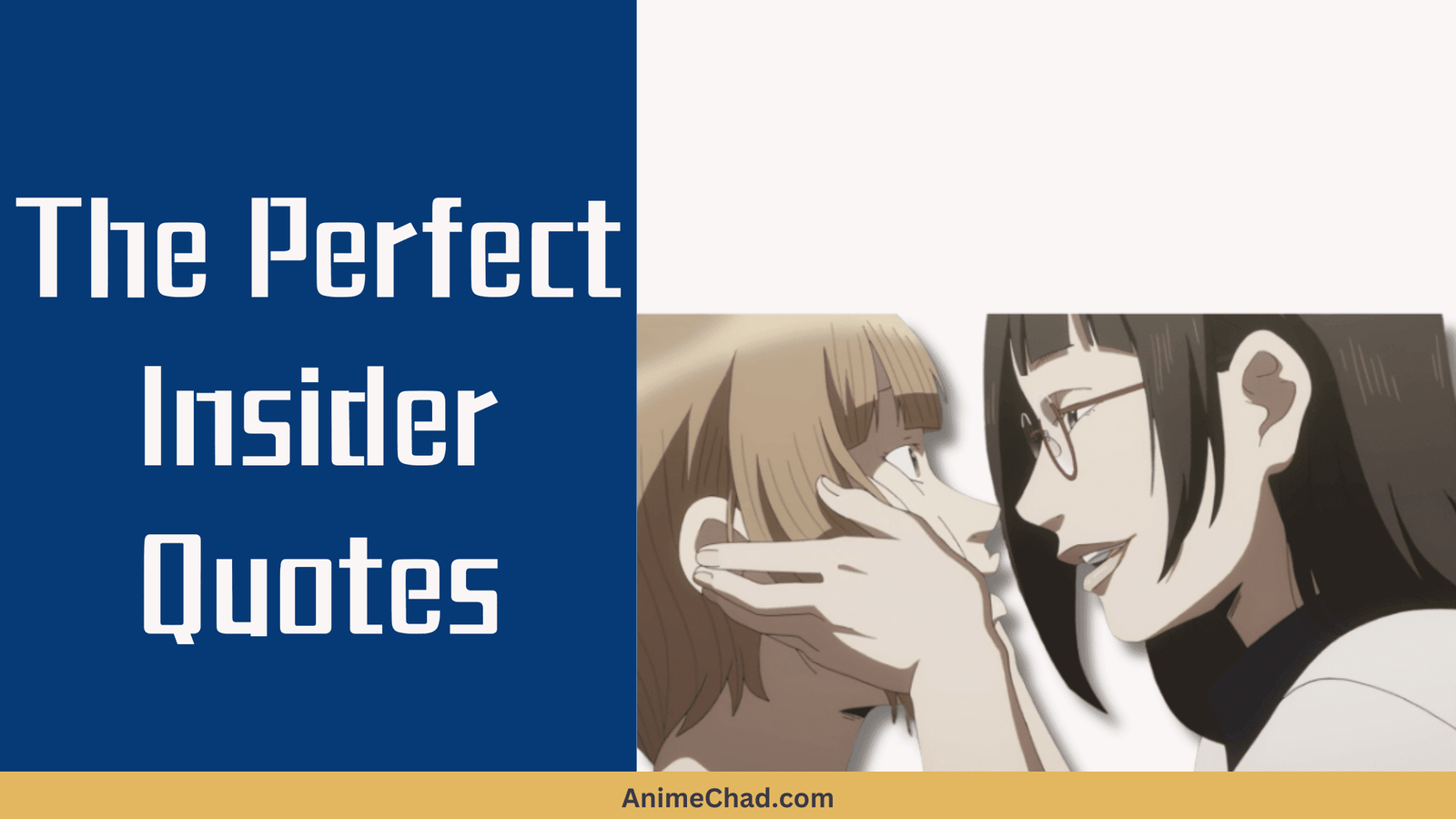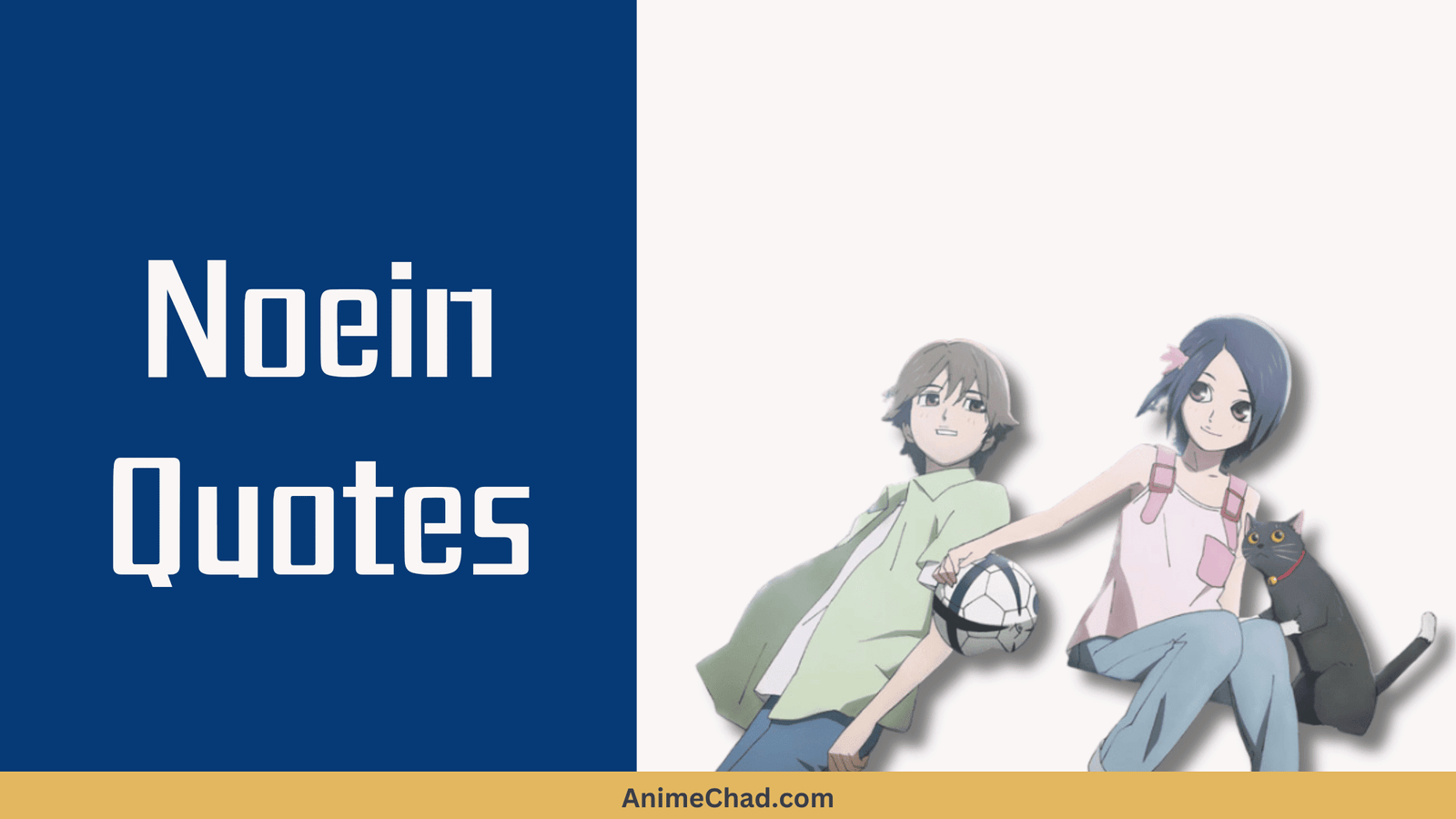Turning Red follows 13-year-old Meilin “Mei” Lee as she navigates adolescence while grappling with a hereditary ability to transform into a giant red panda.
The film explores themes of self-acceptance, generational trauma, and the tension between cultural expectations and personal identity.
This collection highlights 25 quotes that capture Mei’s emotional journey and the transformative power of embracing one’s authentic self.
I’m Meilin Lee. Ever since I turned 13, I’ve been doin’ my own thing, makin’ my own moves; 24/7/365
Meilin Lee
Mei’s opening declaration of independence, masking her struggle to balance autonomy and filial duty.
I’m sorry I’m not perfect! Sorry I’m not good enough! And sorry I’ll never be like you!
Meilin Lee
A raw confrontation with Ming, rejecting the suffocating pressure of parental perfectionism.
We’ve all got an inner beast. We’ve all got a messy, loud, weird part of ourselves hidden awa
Meilin Lee
The film’s thesis on self-acceptance, delivered during Mei’s closing narration.
My panda, my choice, Mom!
Meilin Lee
Mei asserts bodily autonomy, symbolizing her reclaiming of identity from familial control.
The number one rule in my family? Honor your parents
Meilin Lee
Establishes the central conflict between tradition and self-expression in Mei’s Chinese-Canadian upbringing.
Don’t hold back. For anyone. The farther you go, the prouder I’ll be
Ming Lee
Ming’s growth moment, encouraging Mei to prioritize her own aspirations.
I like boys! I like loud music! I like gyrating! I’M 13, DEAL WITH IT!
Meilin Lee
A defiant embrace of adolescent desires, rejecting societal shame around teenage sexuality.
People have all kinds of sides to them, Mei, and some of them are messy
Jin Lee
Jin’s advice to Mei, acknowledging the complexity of human emotions.
You are her pride and joy, so ACT LIKE IT!
Meilin Lee
Mei’s internalized guilt, reflecting the toxic weight of parental expectations.
We are 4*Townies, remember? Ride or die!
Meilin Lee
Mei’s loyalty to her friends, contrasting with Ming’s isolationist worldview.
This isn’t happening, this isn’t happening!
Meilin Lee
Panic during her first transformation, illustrating the terror of losing control.
I’m a gross red monster!
Meilin Lee
Mei’s initial shame about her panda form, mirroring societal stigma around “unladylike” behavior.
But I don’t got time to mess around
Meilin Lee
Highlights Mei’s relentless drive to excel academically while hiding her struggles.
Is everything ok?
Ming Lee
Ming’s constant vigilance, representing generational anxiety passed through hyper-protectiveness.
Nothing’s gonna get in my way
Meilin Lee
Mei’s determination to attend the 4*Town concert, symbolizing youthful rebellion.
I will not hesitate to do a spontaneous cartwheel if I feel so moved!
Meilin Lee
Celebrates unfiltered self-expression, a counterpoint to Ming’s rigid control.
The least you can do in return is every single thing they ask
Meilin Lee
Critiques the transactional nature of filial piety in immigrant families.
Everyone go home! Where are your parents? And put some clothes on!
Ming Lee
Ming’s overprotective outburst at the concert, contrasting with Mei’s rebellious energy.
You think this is a joke? Do you know how dangerous this is?
Ming Lee
Ming’s fear-driven confrontation with Mei’s friends, exposing generational miscommunication.
How could she do this to…her own… mother?!
Ming Lee
Catalyzes Ming’s transformation, mirroring Mei’s struggle with inherited trauma.
You can do it! Keep going!
Miriam, Priya, Abby
Friendship’s redemptive power during Mei’s climactic panda struggle.
This thing’s hungry all the time
Ming Lee
Ming’s nurturing of her digital pet, hinting at unmet emotional needs.
I overcame it and you will too
Ming Lee
Acknowledges shared generational struggles while affirming resilience.
We’ve all got a messy, loud, weird part of ourselves hidden away
Meilin Lee
Reinforces the film’s core message about embracing authenticity.
I am so sorry. She’s never done anything like this before
Ming Lee
Ming’s protective instinct, evolving from control to understanding by the film’s end.

